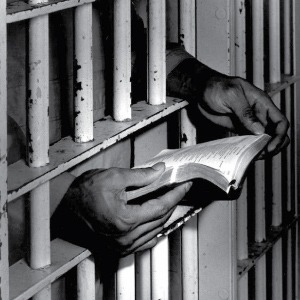Is it Illegal To Make Moonshine in California ?
Is it Legal to Own a Still in California?
- You can own a Still without a permit as long as it’s not for Alcohol production for human consumption which would then be illegal. However, if the still is clearly being used for laboratory purposes or to distill water and / or other substances, possessing a still appears to be legal.
- An addition to the above law it seems that possessing a still for the purpose of making fuel alcohol also appears to be legal in the state of California. But you should keep in mind you would still need a federal fuel alcohol permit.
Penalty for Possession of an Illegal Still?
- According to California Code Section 25352, “The department or its employees may seize any unlicensed still, whether in actual operation or not and whether assembled for operation or dismantled, any parts of such stills, and any materials or supplies capable of being used for the manufacture of alcoholic beverages which are found on or about the premises where any unlicensed still or parts thereof are found. The department or its employees may also seize any implements, instruments, vehicles, and personal property
 in the place or building, or within any yard or enclosure, where any unlicensed still or parts thereof are found.” This statement means it could be still illegal to posses a still if it can be proven you’ve used it to produce Moonshine in the past.
in the place or building, or within any yard or enclosure, where any unlicensed still or parts thereof are found.” This statement means it could be still illegal to posses a still if it can be proven you’ve used it to produce Moonshine in the past. - Next let’s look at property and if it could be siezed if an illegal still is found? CA Code BPC Section 25352 doesn’t mention alcohol itself as being the basis for seizure, just the still and equipment. If illegally distilled alcohol was found by itself, with no still or equipment around, it could be argued that any property other than the alcohol could not be seized, however that may be for a court to determine.
- You should keep in mind if you decide to build a still in the state of California you are required to report it to the California Department of Alcoholic Beverage Control.
Is it Legal to Distill Alcohol in California?
- You must have a permit to Distill Alcohol in California To apply for a permit see the below section.
California Distillers Permit Application
- California Code Section 23367 provides that, “A still license authorizes the person to whom issued to own or possess the number of stills indicated in the license upon the premises for which issued”.
- California Code Section 23363 authorizes the holder of a distilled spirits manufacturer license to sell the distilled spirits.
- Such license is a Non-Retail ABC 04 License (Manufacturing Distilled Spirits, annual fee $444) & Non-Retail License ABC 06 (Still , annual fee $67)—California BPC Code 23320);
What is the Penalty For Selling Moonshine in California?
This really depends on the situation to get a good Idea of Penalties I’ve posted the Federal Governments laws about Home Distallation below! I’ve also added a few new’s articles regarding arrest in California that have taken place over the past few years involving Moonshine.
Federal Law’s on Home Distilling
While individuals of legal drinking age may produce wine or beer at home for personal or family use, Federal law strictly prohibits individuals from producing distilled spirits at home (see 26 United States Code (U.S.C.) 5042(a)(2) and 5053(e)). Producing distilled spirits at any place other than a TTB-qualified distilled spirits plant can expose you to Federal charges for serious offenses and lead to consequences including, but not necessarily limited to, the following:
- Within title 26 of the United States Code, section 5601 sets out criminal penalties for activities including the following. Offenses under this section are felonies that are punishable by up to 5 years in prison, a fine of up to $10,000, or both, for each offense.
- 5601(a)(1) – Possession of an unregistered still.
- 5601(a)(2) – Engaging in business as a distiller without filing an application and receiving notice of registration.
- 5601(a)(6) – Distilling on a prohibited premises. (Under 26 U.S.C. 5178(a)(1)(B), a distilled spirits plant may not be located in a residence or in sheds, yards, or enclosures connected to a residence.)
- 5601(a)(7) – Unlawful production or use of material fit for production of distilled spirits.
- 5601(a)(8) – Unlawful production of distilled spirits.
- 5601(a)(11) – Purchase, receipt, and/or processing of distilled spirits when the person who does so knows or has reasonable grounds to believe that Federal excise tax has not been paid on the spirits.
- 5601(a)(12) – Removal or concealment of distilled spirits on which tax has not been paid.
- Under 26 U.S.C. 5602, engaging in business as a distiller with intent to defraud the United States of tax is a felony punishable by up to 5 years in prison, a fine of up to $10,000, or both.
- Under 26 U.S.C. 5604(a)(1), transporting, possessing, buying, selling, or transferring any distilled spirit unless the container bears the closure required by 26 U.S.C. 5301(d) (i.e., a closure that must be broken in order to open the container) is a felony punishable by up to 5 years in prison, a fine of up to $10,000, or both, for each offense.
- Under 26 U.S.C. 5613, all distilled spirits not closed, marked, and branded as required by law and the TTB regulations shall be forfeited to the United States. In addition, 26 U.S.C. 5615(1) provides that unregistered stills and/or distilling apparatus also will be forfeited.
- Under 26 U.S.C. 5615(3), whenever any person carries on the business of a distiller without having given the required bond or with the intent to defraud the United States of tax on distilled spirits, the personal property of that person located in the distillery, and that person’s interest in the tract of land on which the still is located, shall be forfeited to the United States.
- Under 26 U.S.C. 5686, possessing liquor or property intended to be used in violation of the law is a misdemeanor punishable by up to 1 year in prison, a fine of up to $5,000, or both. Such liquor and property is also subject to the seizure and forfeiture provisions in 26 U.S.C. 5688.
- Under 26 U.S.C. 7201, any person who willfully attempts to evade or defeat any Internal Revenue Code tax (including the tax on distilled spirits) has committed a felony and shall be fined up to $100,000, imprisoned for up to 5 years, or both, plus the cost of prosecution.
- Under 26 U.S.C. 7301, any property subject to tax, or raw materials and/or equipment for the production of such property, in the possession of any person for the purpose of being sold or removed in violation of the internal revenue laws may be seized and shall be forfeited to the United States. In addition, any property (including aircraft, vehicles, and vessels) used to transport or used as a container for such property or materials may be seized and shall be forfeited to the United States. Further, 26 U.S.C. 7302 adds that it is unlawful to possess any property intended for use, or which has been used, in violation of the internal revenue laws; no property rights shall exist in any such property.
Sacramento Man Arrested for Making Moonshine
Investigators say they seized 30 gallons of illegally manufactured distilled spirits, a copper still and supplies to make those spirits from Lloyd Henrichs’ home.
For Granny on the “Beverly Hillbillies,” her tonic or moonshine was a laughing matter.
It’s anything but for ABC agents and now for the 66-year-old Henrichs.
“He’s been arrested on charges of illegally manufacturing alcohol and being in possession of an illegal still…and those are felonies,” said John Carr with the California department of Alcoholic Beverage Control.
Shawn Bean is a mother of two kids who walk up and down Dry Creek Road to school.
The idea of what a still’s heat and vapors could do makes her nervous.
“Yeah, quite a bit. The idea of something exploding,” she said.
Undercover agents say they spent about a month buying from the “Apple Pie” and “straight moonshine” Henrichs claimed to have distilled himself, but they believe he’s been selling for years.
He could spend five years in prison if convicted.